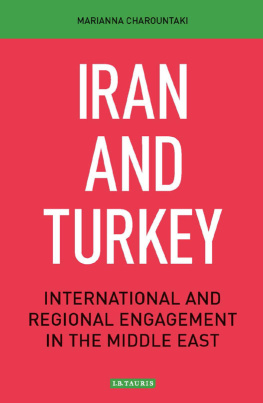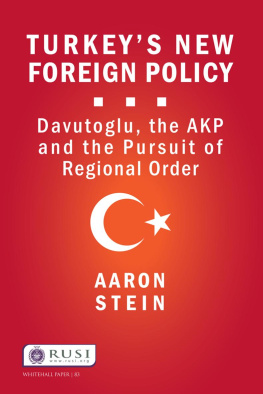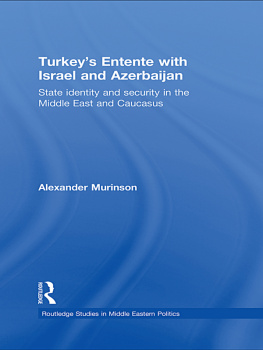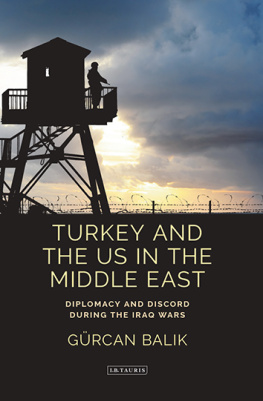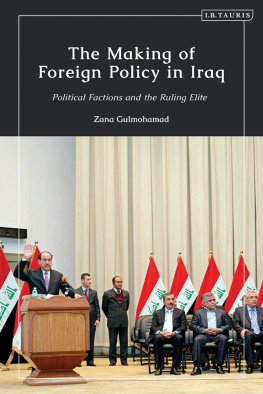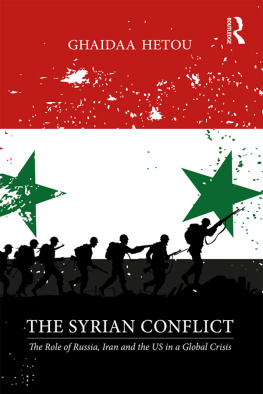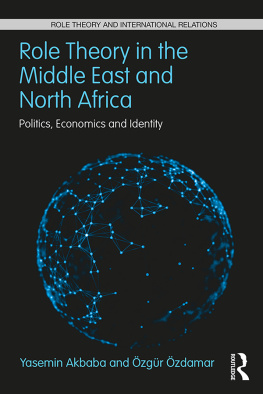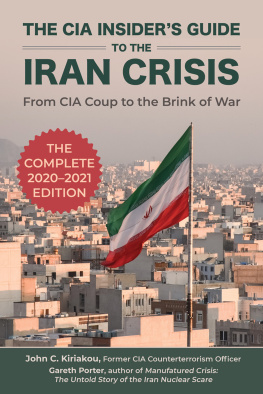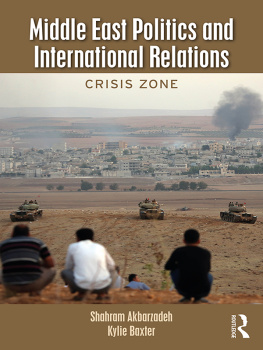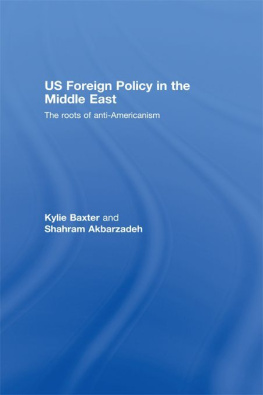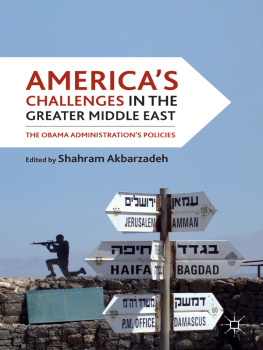Marianna Charountaki is a lecturer in Kurdish Politics and International Relations in the School of History, Politics and International Relations at the University of Leicester. She is also the Director of the Kurdistan International Studies Unit. Her research interests range from foreign policy analysis to the international relations of the broader Middle East. She is author of The Kurds and US Foreign Policy: International Relations in the Middle East since 1945 (2010) as well as articles in Harvard International Review, Journal of American Foreign Policy Interests, Third World Quarterly, Perceptions: Journal of International Affairs and Journal of Arabian Studies.
With analytical richness, strong insights and excellent data, this book is an original contribution to our understanding of IranTurkey relations.
Anoush Ehteshami, Professor of International
Relations in the School of Government and
International Affairs, Durham University
This book pursues an in-depth analysis of the most important determinants to influence Iranian and Turkish foreign policies. Based on outstanding empirical research, which will be of interest to scholars of International Relations, it attempts to bring a holistic approach to the politics of the Middle Eastern region.
Sayyed Ataollah Mohajerani, novelist, historian and
former Minister of Culture of Iran (19962000)
This volume takes a much needed holistic approach to relations between Turkey and Iran and the region they are part of. It cuts across the usual geographical and theoretical boundaries to offer a multi-level analysis of the situation and would be of interest to scholars of any, or all, parts of the area encompassed by the Caucasus and the Middle East.
Natalie Martin, Lecturer in International Relations,
Nottingham Trent University

Published in 2018 by
I.B.Tauris & Co. Ltd
London New York
www.ibtauris.com
Copyright 2018 Marianna Charountaki
The right of Marianna Charountaki to be identified as the author of this work has been asserted by the author in accordance with the Copyright, Designs and Patents Act 1988.
All rights reserved. Except for brief quotations in a review, this book, or any part thereof, may not be reproduced, stored in or introduced into a retrieval system, or transmitted, in any form or by any means, electronic, mechanical, photocopying, recording or otherwise, without the prior written permission of the publisher.
Every attempt has been made to gain permission for the use of the images in this book. Any omissions will be rectified in future editions.
References to websites were correct at the time of writing.
Library of International Relations 87
ISBN: 978 1 78831 180 9
eISBN: 978 1 78672 380 2
ePDF: 978 1 78673 380 1
A full CIP record for this book is available from the British Library
A full CIP record is available from the Library of Congress
Library of Congress Catalog Card Number: available
List of Illustrations
FIGURES
A model for multi-dimensional interactions in international relations.
Polygonal interrelations.
MAPS
General regional map illustrating the area and current borders between Turkey and Iran.
Indicative contemporary map depicting the Ottoman and Safavid Empires.
Original map indicating Kurdish territorial claims in Iran and Turkey as well as potential Kurdish access to the Mediterranean Sea.
Preface
This book examines the dynamic role played by interactions between Iran and Turkey and analyses the primary factors directing their foreign policies, while also exploring their influence on regional and global politics. The book traces the evolution of these determinants in TurkishIranian relations and their subsequent impact on regional events and policies from 1979, pursuing an interdisciplinary, holistic and critical analysis that offers extensive primary source-based empirical research. The research also highlights the important part played by non-state actors on the stage of Middle Eastern politics as a worthy subject for analysis in its own right.
Conceptually, the book presents a fresh and alternative outlook by offering an original theoretical map supported by new and thought-provoking research material concerning the effects of material and ideational (external or internal) factors along with the interaction between actors of state and non-state status on the formulation of Turkish and Iranian policies. This places the study and its subject matter in a theoretical framework for the first time, and thereby makes a valuable contribution in filling a gap in the current literature as well as within the IR discipline.
Turkish and Iranian policies increasingly seem to dictate the Middle Eastern course of events, and therefore the book is very timely, while its scope is wide-ranging, covering the role of most central states in the Middle East (Iran, Iraq, Turkey, Syria), along with international powers (US, Russia), international institutions (EU) and non-state actors (the Kurds). Addressing topical political and IR matters alongside carefully considered conceptual insights make this study a valuable contribution to subject areas such as foreign policy-making, international relations, Middle Eastern politics and Kurdish studies, while the book's original intensively researched approach will undoubtedly make a significant contribution to the academic canon and stimulate future research in this field.
Acknowledgements
This book is an extension of research carried out for my post-doctoral research at the University of Reading a project that could not have been written without the participation and support of my interviewees, and, in particular, the KRG leadership. I would also like to express my appreciation to the PKK leadership and Turkish MPs in Ankara whose valuable input added an extra dimension to the book as well as my Iranian interviewees (one of whom chose to remain anonymous for security reasons) that helped me to present an accurate assessment of the Iranian viewpoint.
I would also like to sincerely thank Professor Alex Cudsi (Panteion University in Athens) for the encouragement to engage with this particular subject-matter and who gave generous support during the initial stages of this enterprise. The substantial contribution of Emeritus Professor Ewan Anderson and Dr Younis Al Lahwej (University of Reading) through feedback and advice in the final stages of the completion of my post-doctoral research has also been crucial and is greatly appreciated.
This book is dedicated to all those scholars who work to increase knowledge by their contributions to the field of political science in the hope of enlightening political elites, and the politicians who strive for peaceful relations in the broader region of the Middle East. Most of all, I dedicate these pages to those currently suffering in lands that have known war and devastation, particularly the people of Syria.
List of Abbreviations
| AIPAC | American Israel Public Affairs Committee |
| AK Parti/AKP | Adalet ve Kalknma Partisi Justice and Development Party |
| AP | Adalet Partisi Justice Party |
| Basij | ( , The Organization for Mobilization of the Oppressed) |
| BTC | BakuTbilisiCeyhan pipeline |

